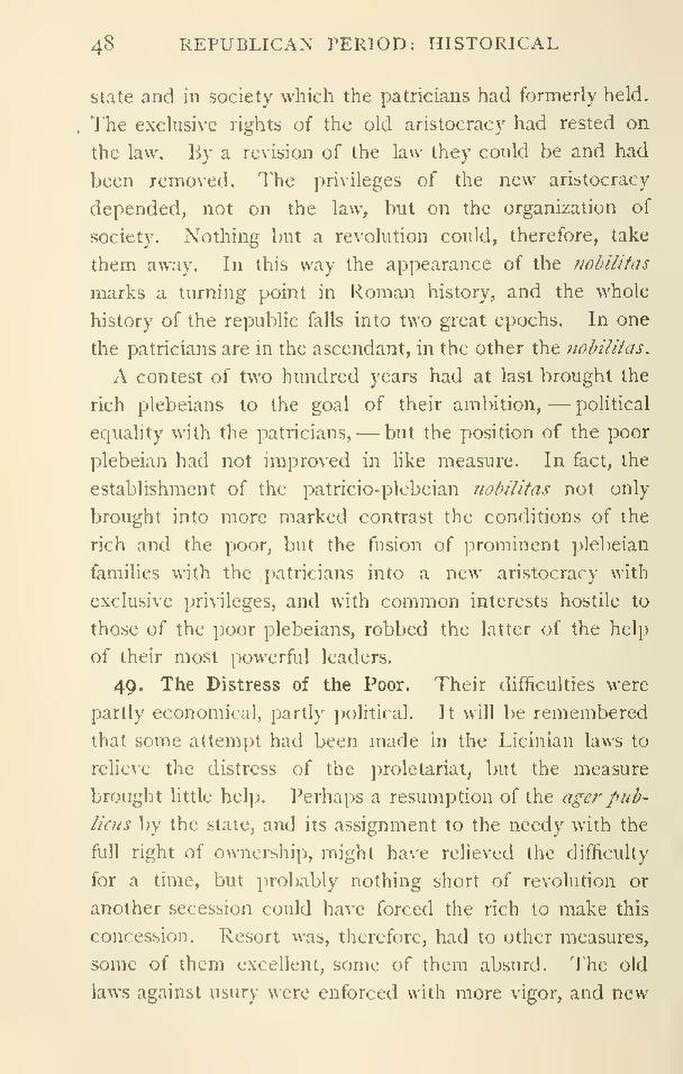state and in society which the patricians had formerly held. The exclusive rights of the old aristocracy had rested on the law. By a revision of the law they could be and had been removed. The privileges of the new aristocracy depended, not on the law, but on the organization of society. Nothing but a revolution could, therefore, take them away. In this way the appearance of the nobilitas marks a turning point in Roman history, and the whole history of the republic falls into two great epochs. In one the patricians are in the ascendant, in the other the nobilitas.
A contest of two hundred years had at last brought the rich plebeians to the goal of their ambition,—political equality with the patricians,—but the position of the poor plebeian had not improved in like measure. In fact, the establishment of the patricio-plebeian nobilitas not only brought into more marked contrast the conditions of the rich and the poor, but the fusion of prominent plebeian families with the patricians into a new aristocracy with exclusive privileges, and with common interests hostile to those of the poor plebeians, robbed the latter of the help of their most powerful leaders.
49. The Distress of the Poor. Their difficulties were partly economical, partly political. It will be remembered that some attempt had been made in the Licinian laws to relieve the distress of the proletariat, but the measure brought little held. Perhaps a resumption of the ager publicus by the state, and its assignment to the needy with the full right of ownership, might have relieved the difficulty for a time, but probably nothing short of revolution or another secession could have forced the rich to make this concession. Resort was, therefore, had to other measures, some of them excellent, some of them absurd. The old laws against usury were enforced with more vigor, and new
